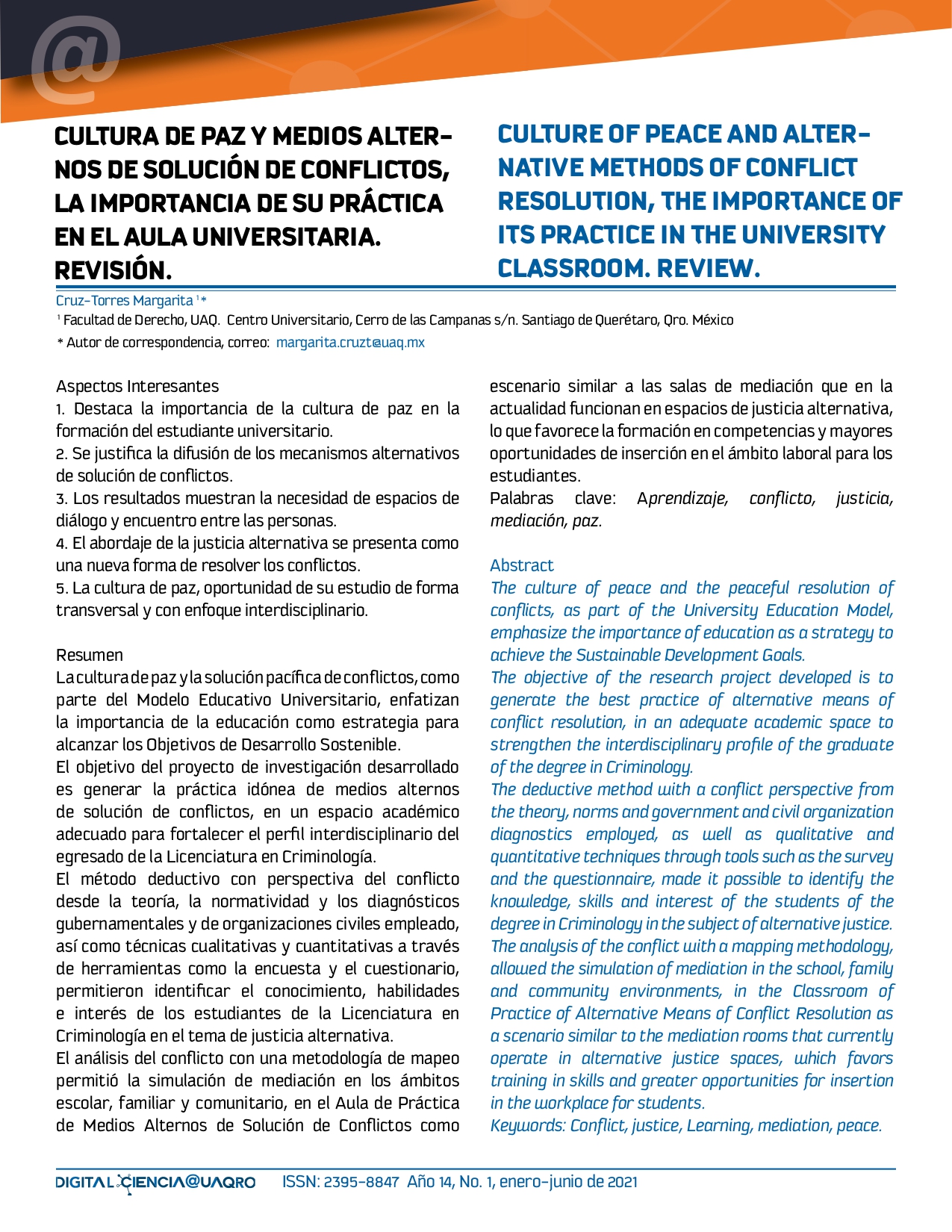Abstract
The culture of peace and the peaceful resolution of conflicts, as part of the University Education Model, emphasize the importance of education as a strategy to achieve the Sustainable Development Goals. The objective of the research project developed is to generate the best practice of alternative means of conflict resolution, in an adequate academic space to strengthen the interdisciplinary profile of the graduate of the degree in Criminology. The deductive method with a conflict perspective from the theory, norms and government and civil organization diagnostics employed, as well as qualitative and quantitative techniques through tools such as the survey and the questionnaire, made it possible to identify the knowledge, skills and interest of the students of the degree in Criminology in the subject of alternative justice. The analysis of the conflict with a mapping methodology,
allowed the simulation of mediation in the school, family and community environments, in the Classroom of Practice of Alternative Means of Conflict Resolution as a scenario similar to the mediation rooms that currently operate in alternative justice spaces, which favors training in skills and greater opportunities for insertion in the workplace for students.

This work is licensed under a Creative Commons Attribution-NonCommercial 4.0 International License.

